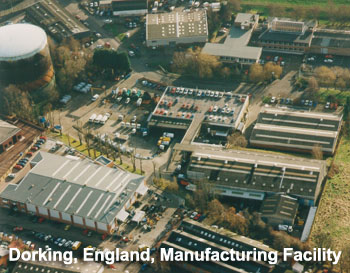Sweeping Industry Supplier Profiles |
Johnston Sweepers, Ltd. Establishes a Foothold in the USA
The following is an overview of the worldwide leader in road sweeper manufacturing, Johnston Sweepers, Ltd. In addition to a synopsis of the company spanning its start in 1904 to the present, we offer a 2012 interview with Bill Ackendorf, the acting general manager of the US affiliate, Johnston North America.
Street sweepers didn't become part of the company until 1924, when Johnston Brothers took over the assets of 'Road Plant Construction Company Limited.' Britain's road system was fast expanding at that time and the company took advantage of that by manufacturing a variety of engineering equipment from agricultural machinery through to road construction and road sweeping equipment.
This production-based machine, called the Mk1, was launched at the 1960 Public Works Exhibition in London. As the first ever sweeper with suction that was mounted on a standard production truck, the Mk1 created enormous interest and was a major milestone in road sweeper development. In 1961, the first Mk1 was exported to Denmark. The expanding Johnston Brothers' Company became a public company in 1964, which is when it became known as 'Johnston Group.' Technical development continued at pace and by August 1965 Johnston had delivered its 500th sweeper. At that point, Johnston Group supplied 80% of the sweepers sold in the UK market. The company's next major development came in 1968 with the introduction of the Johnston 200-Series. Until this time, all Johnston sweepers required the installation of a purpose-designed gearbox, which split the engine power between propelling the chassis and operating the suction fan and sweeper brushes. The 200 was the first two-engine or 'dual' machine. Although we take this type of design for granted in the 21st century, it was a major innovation when a separate engine was added to drive the fans and brushes. For the first time, the dual engine design allowed for constant suction and brush action. During its 11-year production run a total of 3,956 200-Series machines were built.  Johnston's next major innovation came in 1978 with its 400-Series sweeper design. Unlike any machines before then, the 400-Series introduced the new concept of 'skid-unit' manufacturing. The skid unit contained all the sweeper components above the vehicle chassis frame.
Johnston's next major innovation came in 1978 with its 400-Series sweeper design. Unlike any machines before then, the 400-Series introduced the new concept of 'skid-unit' manufacturing. The skid unit contained all the sweeper components above the vehicle chassis frame.
Mounted on its own sub-frame and with lifting points built-in, the unit could be stored ready for mounting on any chassis without dismantling. Skid units could also be shipped overseas for local assembly. In 1986 the company entered the field of producing small compact sweepers with the acquisition of Babcock Sweepers, Ltd. The small sweeper line was advanced further in 2000 when the company acquired the Canadian-based MadVac organization.
In 2005, the firm was sold to the Swiss conglomerate, Bucher Industries. Since that time, the Bucher-operated firm has expanded the Johnston product offerings with the addition of the VT550, truck-mounted sweeper and a new generation of compact sweeper models.
Over the last several years, Allianz had increasing difficulty making ends meet. In April of 2011 this resulted in the bankruptcy of Allianz. Out of the ashes of the receivership of Allianz, Global Sweeping Products was formed by former Allianz managers with the goal of continuing the production of the former Allianz company's broom sweeper models.
Initially named to manage this operation was a man named Bob O'Hara, whose previous involvement with the sweeping industry includes experience with Powerboss and Tennant. However, soon after he took over O'Hara was beset by some serious health concerns. In the interim until O'Hara recovers fully, former Elgin Sweeper Company management executive, William "Bill" Ackendorf is managing the company as Interim General Manager.
Note: To play the interview, click this link or on the small triangle inside the circle you see to the left. If you have any trouble accessing this audio, please let us know. You may reach Johnston North America by calling 704.658.1333. Bill Ackendorf may be reached via email sent to bill.ackendorf@johnstonnorthamerica.com. If you have questions or comments about this story, please let us know.
|
© 2005 - 2021 World Sweeper
|
Sweeping Industry Supplier Profiles Contents
|